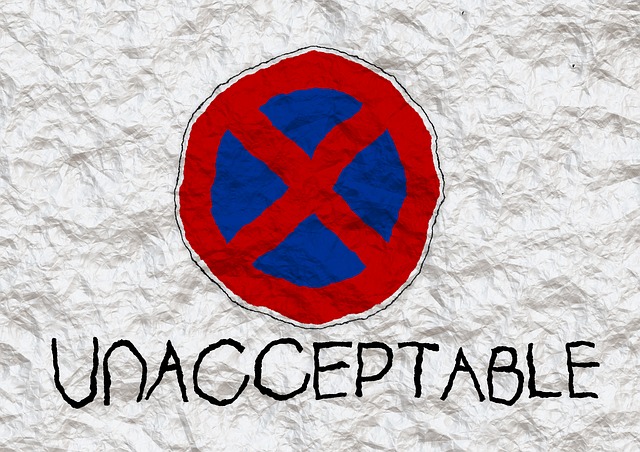“Of the criminal guarantees and of the application of the criminal Law” is how is entitled the Preliminary Title of the Spanish Criminal Code, as well known as the Organic Law 10/1995, of 23 November (LO 10/1995), which entered into force on 26 May 1996 (Seventh Final Disposition LO 10/1995).
The LO 10/1995 gave birth to the first Criminal Code of the Spanish democracy, until then solely there had been made reforms of the Criminal Code of 1944, which was begotten and applied during the dictatorship of Francisco Franco, and in which we could stress the reintroduction of the capital punishment.
The Exposition of Motives of the LO 10/2015 says: “The Criminal Code defines the crimes and misdemeanors which constitute the conditions of the application of the supreme form which may adopt the coercive power of the State: the criminal punishment”. Therefore, in the LO 10/1995 we find the basic norms which regulate the coexistence within the Spanish society, on it we find the typification of the behaviors more damaging for this coexistence and which deserve the enforcement of the punitive power of the State, expressed in some of the punishments envisaged in the art. 33 of the LO 10/1995. The rest of the behaviors which are not typified in the LO 10/1995, may be punished by the administration, but never as a crime.

The Exposition of Motives of the LO 10/1995 also says to us: “The Criminal Code has to protect the basic values and principles of the coexistence. When this values or principles change, it must also change.” And this has been the case, because the own LO 10/1995 is a law which has suffered diverse modifications, since its entering into force, for adapting it to the social values in vigor in this moment, or being even more precise, to the social values defended by the party which has the support of the majority of the Spanish Parliament (art. 81 Spanish Constitution). The last great reform was carried out through the LO 1/2015, by means of it the misdemeanors disappeared, and with them the Book III where they were regulated, but above all this reform will pass to the history, because it introduced in the catalog of punishments of the CP, the permanent revisable imprisonment. A punishment which was the object of hard critics by the left, embodied in a constitutional challenge that finally sanctioned the reform but with some clarifications: it regarded that the art. 92.3 CP granted “to the judge responsible for the enforcement of sentences, as the organ with competence for controlling the parole, a faculty almost absolute for agreeing the return to prison of the released by virtue of an assessment of his personal circumstances without legal guidelines.”, being restrained “the revocatory efficacy of the alluded change of circumstances to the cases in which there were a failure in complying with the duties with revocatory efficacy established in the art. 86.1 CP”; and it considered that the laws regulating the revocation of the parole were constitutionally unsatisfactory for being incomplete, and was fixed as interpretation that “after the revocation of the parole, there must be regarded as applicable the exigences imposed to the sentencing tribunal in the article 92.4 CP of verifying, each two years, the fulfillment of the requisites for accessing to the parole and of ruling the petitions which the convicted aims with the temporal conditions established in such norm.”
After the reform by means of the LO 1/2015 of the CP, this is made up of a Preliminary Title, which is the object of the present writing, a Book I on the “General Dispositions about the crimes, the persons liable, the punishments, measures of security and others consequences of the criminal infringement”, and a Book II on “Crimes and their punishments”. In the Preliminary Title, we find basic principles, the principle of legality, the principle of non-retroactivity of the unfavorable criminal norms, the principle of liability, and it talks about of the possibility of being pardoned the punishment. Let us see each of these points.
– The principle of legality:
The principle of legality is the most important principle which must rule over all the relations between a state and its citizens. A behavior cannot be punished, if previously there is not a written norm with the level of law which establishes it. Otherwise a citizen who is subject to the repressive power of the state, could be punished in an arbitrary way and without knowing that certain behavior has associated certain punishment. In short, a subject must know the consequences of a behavior before this behavior can be punished.

This principle of legality appears developed in the art. 1, art. 2, art. 3, art. 4, and the art. 7 of the CP, being expressing in different ways what we have just said. But likewise, it is a right recognized by the by the Spanish Constitution (CE), firstly in its art. 9.3 with general character, and afterwards in the article 25.1 with regard to the criminal norms, achieving in this article the rank of fundamental right.
In such a sense the Spanish Constitutional Court has said in its sentence 47/2022 of 24 March 2022: “According to the doctrine of this court, the mandate stated contains a subjective fundamental right which comprehends a formal guarantee, consisting in the necessary existence of a norm with the level of law as previous condition to the punitive actuation of the state, which defines the punishable behaviors and the punishments which correspond to them, and a material guarantee in order to guarantee the normative predetermination of the illicit behaviors and the corresponding punishments (STC 24/2004, of 24 February).
The material guarantee, regarding the legislator, is translated in the mandate of specificity (lex certa), which fundamentally comprehends the exigence of a precise typification endowed with adequate accuracy in the description which it incorporates. On the other hand, the analogy in malam partem and the extensive interpretations of the criminal norm by the judicial organs has been expressly refused by our doctrine, for disagreeing with the mandate of the art. 25.1 CE.”
– The principle of non-retroactivity of the unfavorable criminal norms:
This principle in reality directly derives from the aforementioned principle, it could be said that it is a variable of the principle of legality. It supposes both a protection of the subject against reforms of the CP which could harden the repression of a crime and against reforms of the CP which could start to punish certain behavior. As the permanent revisable imprisonment introduced by the LO 1/2015. A behavior typified as crime, must be tried according to the norm in force in the moment the facts were committed, save, either when the behavior typified afterwards passes to be decriminalized or it passes to be punished less severely than before, because in this cases the convicted can be a beneficiary of the reform. The principle of non-retroactivity of the unfavorable criminal norms protects against that, the retroactivity of the unfavorable criminal norms, but not against the favorable.

As in the case of the principle of legality, being a principle derived from it, it is developed in the same articles of the CP mentioned above, and it also achieves the rank of fundamental right in the art. 25.1 of the CE.
Regarding this principle, the Spanish Constitutional Court says in its Sentence 234/2007 of 5 November 2007: “The basis of the prohibition of the retroactivity of the unfavorable criminal norms, in prejudice of the convicted, is identified with the principle nullem crimen, nulla pena sine previa lege, in other words, with the citizens´ guarantee of not being afterwards surprised either with a qualification of the crime or misdemeanors or a punishment not envisaged, or more severe than the envisaged at the time of committing the fact, it means that is absolutely forbidden by virtue of the art. 25.1 CE to apply one criminal law unfavorable to facts occurred with posteriority to its entry into force (STC 21/1993, of 18 January).”
– The principle of liability:
According to the principle of liability, it has been denied “that it is constitutionally legitimate a criminal law “of author” which determines the punishments in attention to the personality of the convicted and not in accordance with him in the commission of the facts”. To this principle has been linked likewise, “the proscription of the liability without fault or objetive liability in the ambit of the ius puniendi, which, besides of demanding the presence of either malice or negligence, it also entails the necessity of determining the responsibility of the action or the punishable omission” (Spanish Constitutional Court´s sentence 14/2021, of 28 January 2021).
We find this principle in the article 5 CP, according to which «there is no punishment without malice or negligence”.

But, what is the malice or the negligence? The malice has been generally understood as the willful and conscious commission of an act which is known it is regarded as a crime, although it only comprehends the direct malice, hence the above definition is incomplete, if we also do not take into account the cases in which through one action can be created a risk for a protected legal good, when from the existence of such risk and from the condition of legal good protected is altogether conscious the person who executes it, and despite this he ends executing it, this is the called eventual malice.
The Spanish Supreme Court´s sentence 2625/2022 says regarding to this: “Hence, we have stated that the malice according to the dentition more classic, means knowing and wishing the objective elements of the typified crime. In reality, the will of achieving the result is only the more frequent manifestation of malice in which the author follows the realization of a result, but it does not impede considering as malice the behavior in which the author wants to carry out the typified action, knowing of the possibility of the production of the result (STS 16/06/2004)”.
Concerning the eventual malice we can take as example the Spanish Supreme Court’s sentence 2292/2022: “There will exists eventual malice when the risk that the author creates, knowing or being avoidable, for the legal good is of such an intensity that a reasonable person perceives that the result of harm will be either produced or can be produced, and in spite of this, he decides to act.”
In fact, the lack of conscience that an action is typified as a crime excludes all malice and therefore, all the liability arising from it, save when the error was beatable, in those case the infringement would be punished as negligence (art. 14 CP). Regarding to this, the Spanish Supreme Court´s resolution 10009/2022 says: “The consciousness of the unlawfulness is an element of the liability, necessary for in order that a determined behavior may be regarded as deserving of criminal punishment. If that conscience of unlawfulness lacks, either directly for believing that the fact is not legally punished or an error upon the imperative or prohibitive norm (direct error of prohibition), or indirectly for estimating that a cause of justification concurred (indirect error of prohibition or error of permission), the criminal doctrine understands that the subject cannot be regarded as liable of the fact, if the error is unbeatable, or that he deserves a reduction of the punishment if it is regarded beatable (art. 14.3 CP).”
On the other hand the negligence, is a legal concept more complex, bordering with the eventual malice when it is a serious negligence, for the LO 1/2015 distinguishes between the serious negligence and the less serious negligence, leaving the slight negligence reserved the the (civil) ambit of the extra-contractual liability.
According to the Spanish Supreme Court’s sentence 2648/2022: “The essence of the crime of negligence is the infringement of the duty of care which makes punishable his behavior because this care was demandable to him.” Afterwards it adds the elements which compound the negligence: “a) a willful not intentional or malicious action or omission, with the absence of whatever direct or eventual malice; b) the psychological or subjective factor consisting in the negligent action for a lack of the forecast of the risk; c) the normative or objective factor represented by the infringement of the objective duty of care, concreted in the regulation or imposed by cultural social norms demandable to the average citizen, according to common experience; d) the production of the harmful result; and e) adequate causal relation between the careless action which unleashes the risk and the harm caused, within the ambit of the objective imputation ( SSTS. 1382/2000 de 24.10, 1841/2000 de 1.12.).”
Therefore, the great difference between the eventual malice and the negligence is that, in the case of the negligence it may consist both in an action and an omission, the harmful result cannot be wished or accepted, and such action must be reasonable risky, not allowed, due to the omission of the duty of care usually demanded by the legal system, by the customs, or by the rules of coexistence.
The Supremo Court´s sentence 2543/2022 says: “In the imprudent crime, thereby, it is produced a result socially harmful through an avoidable action which surpass the risk allowed. The consideration as a negligence of the action will be determined through the comparison between the action which was carried out and the action which was demanded by the duty of care in the concrete situation.”
In order to distinguish the serious negligence from the less serious negligence, we should attend to the importance of the duty omitted, the value of the legal goods affected and the possibilities of provoking the result.
According to the aforementioned sentence of the Spanish Supreme Court 2543/2022, the serious negligence is: “the most intolerable omission of diligence, through either an active or omissive conduct, which causes a harmful result and which is normatively connected with the result.” Whereas in the same sentence the less serious negligence is defined as: “the setting-up of a risk of inferior nature, to the serious, assimilable in this case, the less serious negligence, as the infringement of the average duty before the activity which is carried out by the agent in the corresponding action to the behavior which is the object of attention and which is the main cause, with the produced result, in such way that it can be affirmed that the creation of the risk is imputable to the agent, either for his professional behavior or for an action or omission in one activity socially and legally allowed which may cause a harmful result”.
– Firm sentence:
The article 3 of the CP says that: “There can be executed neither punishment nor measure of security but by virtue of firm sentence dictated by the Judge or Court with competence, according to the procedural laws.”

In order to regard a sentence as firm, either all the appeals against it envisaged on the Spanish Criminal Procedure Act (LECrim) should be exhausted, in other words, the appeal and cassation appeal, or period to lodging them has to have elapsed. A sentence may acquire firmness too, if once the parties know the ruling manifest their will of not appealing it (art. 789.2 LECrim).
Nevertheless, although a sentence is not executed until it is firm, the judge and courts my impose personal and real preventive measures upon those to whom the evidences points out as liable for the crime investigated.
– The pardon:
The pardon supposes an exception to the general rule that all firm sentences must be executed in their own terms, a principle which is legally envisaged in the art. 118 CE, the art. 18.2 of the Organic Law of the Judicial Branch (LOPJ), the art. 988 of the LECrim and the art. 3 CP.

Being the pardon regulated in the Law of 18 June 1870, it offers the possibility of obtaining the pardon by the Government of the nation in order to avoid the fulfillment of a punishment, for the granting of the pardon if a faculty of the Government, at the request of the sentencing court (art. 27 of the Law of 18 June 1870).
Notwithstanding this possibility, which exists, the punishment has to be fulfilled until the pardon is granted regardless its request, except the cases in which the envisaged on the article 4 of the CP is applied, because it allows a suspension of the punishment until the Government takes a decision concerning the pardon. The suspension of the punishment can be granted: to avoid the execution of a punishment when the finalities of special prevention and social rehabilitation may not concur due to the period elapsed; and, when the concession of the pardon may result ineffective for existing the risk that the punishment may be exhausted once the pardon is granted.
Víctor López Camacho.
Twitter: @victorsuperlope.
More on my website: www.victorlopezcamacho.com

Un comentario